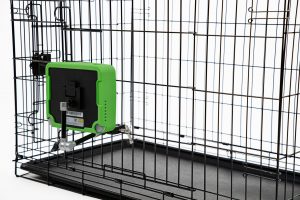The development of artificial intelligence (AI) has affected people in many ways, improving the experience of life. This improves the understanding of complex problems and the results obtained are more probable and accurate. In human medicine, AI is projected to reach more than € 150 billion in the next decade.
In the same way that human medicine makes use of advances in AI, veterinary medicine uses this type of technology to improve the lives of companion animals, especially in areas such as radiography, triage, and disease diagnosis.
Artificial intelligence is a field of computing that simulates human intelligence through the use of computers. This technology quickly and exhaustively analyzes very large data sets under instructions called algorithms that indicate what specific task must be performed. However, the AI can only do what is advised, so it is far from replicating human cognition and intelligence.
In 2019, the American National Academy of Medicine declared that AI “Has the potential to revolutionize healthcare” and “offers unprecedented opportunities to improve patient and clinical team outcomes, reduce costs, and impact population health,” but also tried to temper expectations about AI, stating that there is still much work to be done.
AI IN DISEASE DIAGNOSIS
The doctor Krystle reagan, a veterinary internist at California Veterinary Medical Teaching Hospital and an advocate for AI, helped develop an algorithm to detect Addison’s disease in dogs with an accuracy rate greater than 99%. This algorithm consisted of the results of more than 1,000 blood tests from dogs treated at the university hospital, so that the AI was able to use the established pattern to determine if a new patient was developing Addison’s disease. These results were published in the journal Domestic Animal Endocrinology.
In other research, Dr. Reagan, in collaboration with Dr. Strohmer, professor of mathematics and director of the University of California Center for Science and Artificial Intelligence and the Center for Data Science and AI, is encoding dog data treated at the veterinary hospital in which leptospirosis was diagnosed or suspected in the last decade but later ruled out.
Leptospirosis is a condition where time is detrimental since the disease can cause serious kidney problems that may require dialysis, so it is important to diagnose it early. However, according to Dr. Reagan, this disease “requires two antibody tests approximately 10 days apart.” This means that a diagnosis cannot be established until 10 days after illness, so a tool with AI technology is required to help veterinarians give a prognosis to the owners of sick pets.
AI IN X-RAY
AI is also being used with great success in the area of X-ray vision, as it has been shown that complex algorithms are very accurate in recognizing image data patterns. The American National Academy of Medicine indicates that “tasks for which current AI technology seems adequate include prioritizing and tracking findings that require early attention, comparing current and previous images, and high-throughput evaluations that allow radiologists to focus on images most likely to be abnormal. Over time, it is likely that routine image interpretation will increasingly be done using AI applications. “
The Dr. Seth Wallack, veterinary radiologist and founder of the company Vetology, comments that radiological studies show results in 70% or 75%, although they are trying to be able to make an 80% correct diagnosis in order to transmit better results to pet owners. In this sense, the doctor explains that it is very important to create a feedback loop in order to implement the results of AI to “help the machine learn and improve future results of AI.”
LOOKING AT THE FUTURE
For his part, Dr. Rolan Tripp, founder of Veterinary Future Society, believes that AI is the future of veterinary medicine and that this will revolutionize the practice and way of working, but also, as president-elect of the Society for Veterinary Medical Ethics, shows concern for ethical considerations and issues, since “this is an almost virgin territory because very little has been written about it.”
The doctor also defends the need to anticipate and accommodate the impacts that AI will have on the veterinary profession, and argues that it is necessary to have a plan to try to direct and understand artificial intelligence and its impact in the future.
https://thegoaspotlight.com/2021/12/08/the-uses-of-artificial-intelligence-in-veterinary-medicine/






